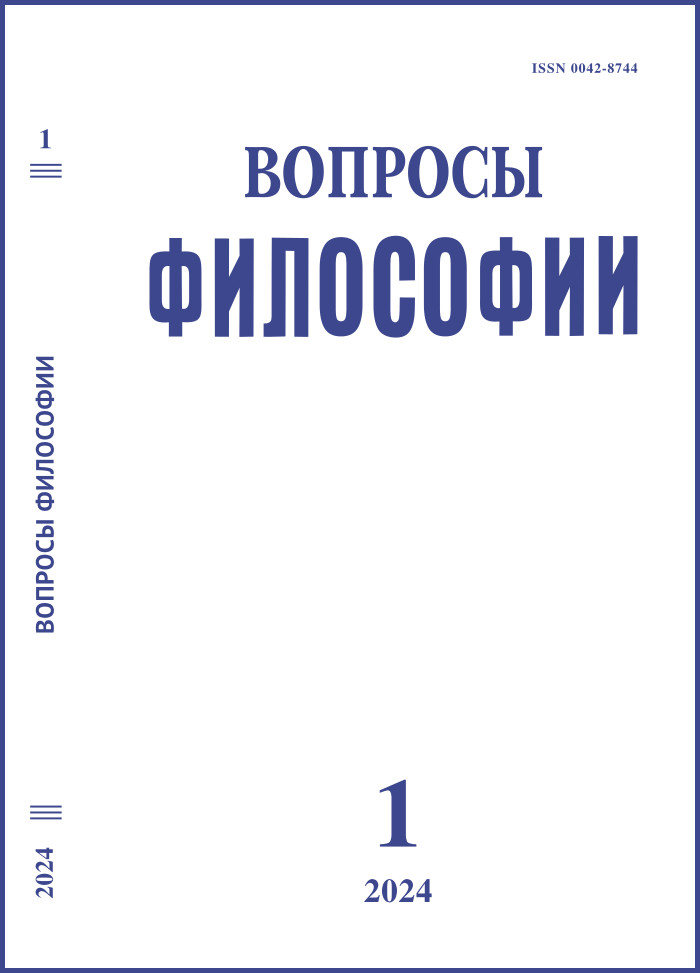On the Main Issues of the Philosophy of Science in the Polemics of Nikolai Strakhov with Scientists-Spiritualists
DOI:
https://doi.org/10.21146/0042-8744-2024-1-111-118Keywords:
Nikolay N. Strakhov, philosophy of science, Russian philosophy, science, method, rationalism, empiricism.Abstract
In the ongoing intellectual search for the “origins” and “beginnings” of the philosophy of science in Russia, one of the most significant is the return to texts written in the 19th century, when the philosophical and theoretical trends that determined the directions of development of non-classical epistemology in the 20th century had not yet emerged and finally stood out. At the same time, it is quite difficult for us today to strictly distinguish between the ideological trends of that time, separating the philosophy of science from ethics, and political philosophy from social philosophy. Russian philosophy of the 19th century was formed in the field of publicism and popular science literature, addressed to the entire educated reading public, and not to specialized audiences of philosophers, natural scientists, humanities scholars, etc., with in-depth semantic and thematic specialization. The article analyzes the philosophical and scientific content and significance of the book “On Eternal Truths (my dispute about spiritualism)”, compiled by the famous Russian philosopher Nikolai Nikolaevich Strakhov from the materials of his polemics with spiritualist chemists published in literary and scientific periodicals. The formulation of questions about cognitive apriorism, about the external and internal limits of scientific rationality, about the role and place of empirical knowledge in the substantiation of theories and in solving applied practical problems, about the cultural and national specificity of intellectual traditions and prerequisites, about the reflection of epistemological attitudes in the categorical language of science and etc. are being identified. A conclusion is drawn about the relevance of Strakhov’s approach for discussing the state and problems of modern philosophy and methodology of science.

